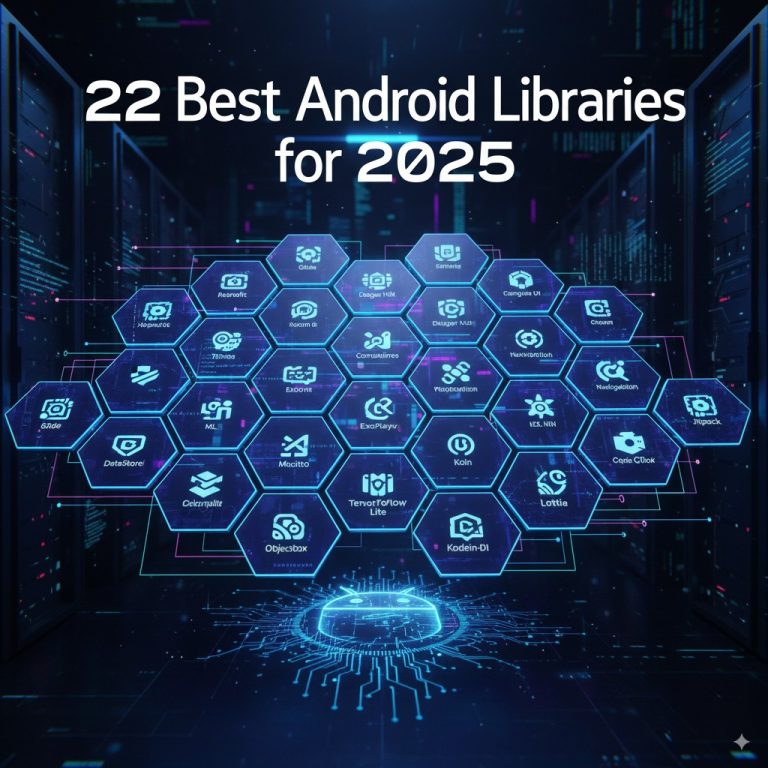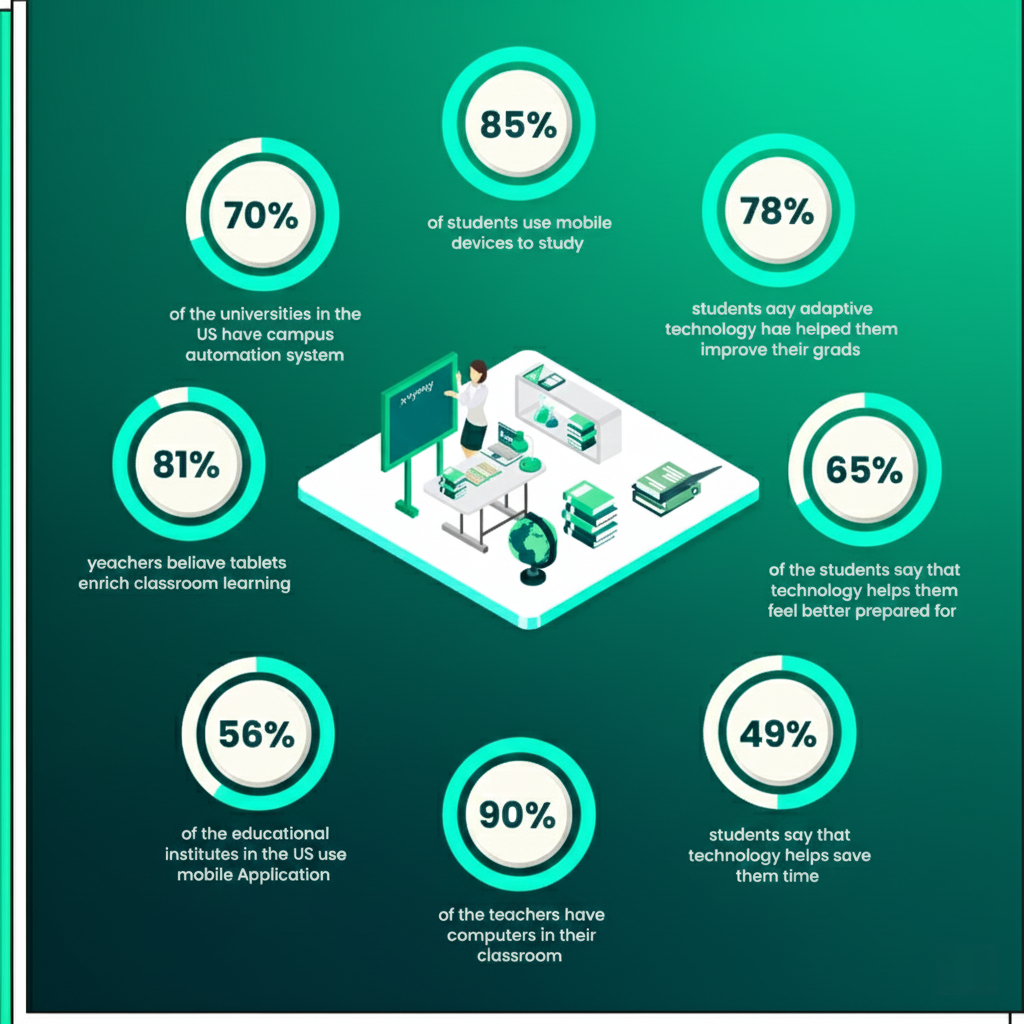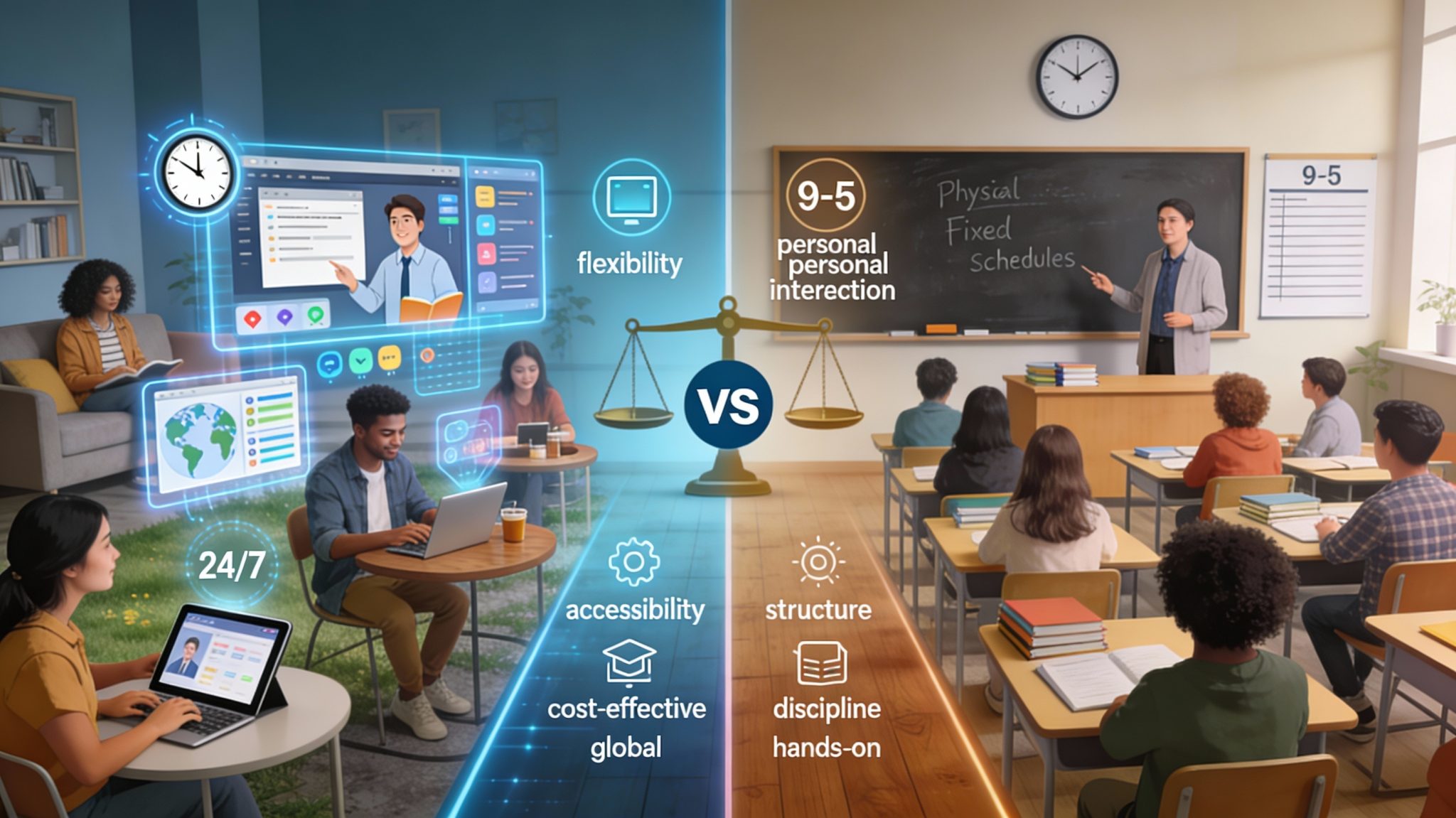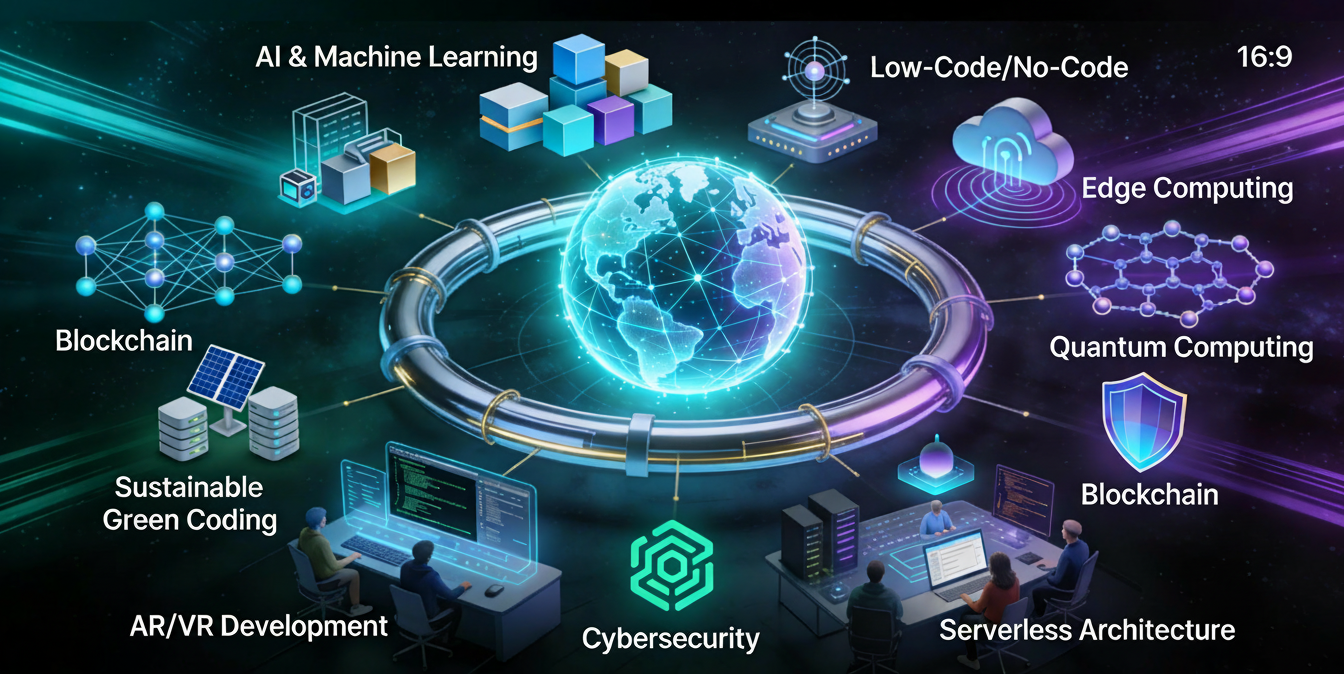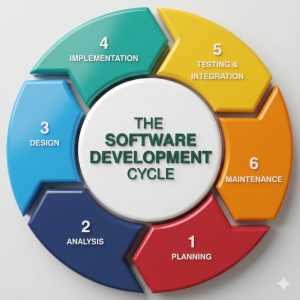Introduction
Android app development is continuously evolving, with new libraries and tools that streamline coding, improve app performance, and enhance user experience. For developers aiming to create state-of-the-art Android applications in 2025, leveraging the right libraries is essential to save time, reduce bugs, and adopt best practices.
This blog highlights the 22 best Android libraries for 2025 trusted by developers to accelerate their workflows and build powerful, scalable apps. These libraries also integrate well with AI, modern workflows, and cross-platform strategies embraced by companies featured on TechOTD AI Services and TechOTD Blog.
1. Jetpack Compose
Google’s modern UI toolkit enables declarative UI design with Kotlin, reducing boilerplate and improving development speed. Compose tightly integrates with other Jetpack components like ViewModel and Navigation.
2. Hilt
A dependency injection library built on Dagger, Hilt simplifies managing object lifecycles and reduces boilerplate, improving code modularity and testability.
3. WorkManager
Manages deferrable background tasks, ensuring jobs run under specified constraints, even if the app is closed or the device restarts.
4. Room
Google’s SQLite object-mapping library streamlines database interactions with type-safe queries and compile-time checks.
5. Retrofit
A type-safe HTTP client for Android and Java, Retrofit simplifies API calls and network communication.
6. Coil
An image loading library optimized for Kotlin and Jetpack Compose with efficient memory handling and easy integration.
7. EventBus
Offers publisher/subscriber pattern implementation to decouple app components and simplify event-driven communication.
8. RxKotlin
Extends RxJava’s reactive programming capabilities with Kotlin idioms, enabling streamlined asynchronous programming.
9. Navigation Component
Android Jetpack library that supports efficient in-app navigation and back stack management.
10. Glide
Image loading and caching library for smooth scrolling with large or complex images.
11. Timber
A logger with enhanced capabilities, making debugging easier in production and development.
12. Lottie
Library to render Adobe After Effects animations natively on Android, improving app storytelling.
13. Gson
Google’s library to parse JSON into Java/Kotlin objects and vice versa.
14. Koin
Lightweight dependency injection framework focused on Kotlin, offering a simpler alternative to Dagger.
15. Espresso
UI testing library maintaining app stability with automated interaction simulation.
16. Mockito
Popular mocking framework aiding unit testing by simulating complex objects.
17. Timber
Logging utility to replace native Android Log with better usability and customization.
18. LeakCanary
Memory leak detection tool that helps identify and fix leaks during development.
19. Espresso Idling Resource
Helps synchronize asynchronous events during Espresso UI tests.
20. Stetho
Debug bridge for Android applications enabling rich debugging capabilities using Chrome Developer Tools.
21. Kotlin Coroutines
Enables smooth asynchronous programming with simplified syntax for concurrency.
22. Material Components for Android
Google’s official UI component library implementing Material Design guidelines.
Conclusion
In 2025, Android development demands efficient, robust libraries that empower developers to build modern applications quickly and efficiently. Combining these 22 libraries equips your development toolkit with powerful tools to handle UI, networking, data, testing, and performance optimization.
